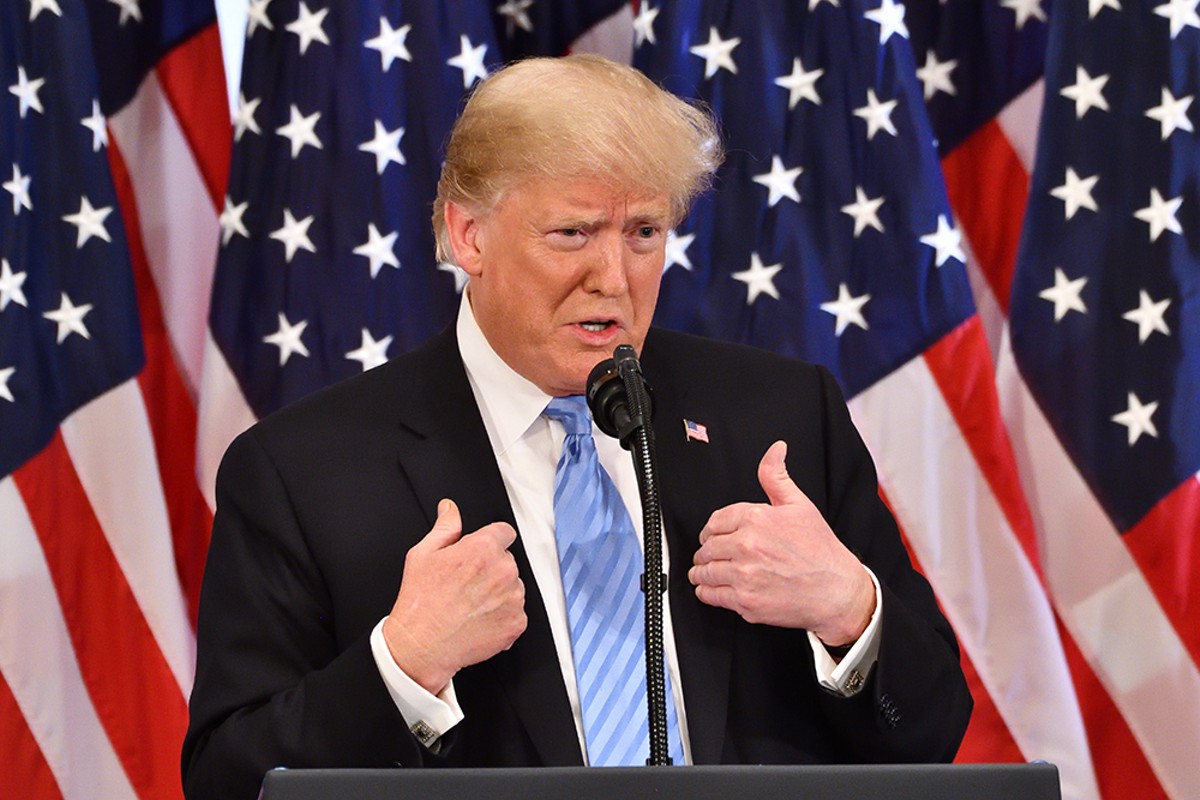"The reason you're seeing so much attention to [COVID-19] today is that [the media] think this is going to be the thing that brings down the president. That's what this is all about it. ... The flu kills people. This is not Ebola. It's not SARS, it's not MERS. It's not a death sentence; it's not the same as the Ebola crisis." — Acting chief of staff Mick Mulvaney, Conservative Political Action Conference, Washington, D.C., February 27
From 2014–16, Ebola killed more than 11,300 people. In 2003, SARS infected 8.096 people and killed 774. In 2012, MERS spread throughout the Arabian Peninsula, leading to about 2,500 confirmed cases and 858 deaths by the end of 2019.
As of Monday morning, COVID-19 has infected nearly 1.3 million people and killed 70,356 in just over three months.
Mulvaney wasn't speaking out of turn. This was the party line. A day earlier, on February 26, Trump tweeted that the coronavirus was "very much under control." At a press briefing on February 24, when there were 58 known coronavirus cases in the U.S., Trump said it wasn't as big a deal as the flu: "The flu, in our country, kills from 25,000 people to 69,000 people a year. That was shocking to me. ... And again, when you have 15 people, and the 15 within a couple of days is going to be down to close to zero, that's a pretty good job we've done."
A few hours after Mulvaney hand-waived the coronavirus threat, the president traveled to a MAGA rally in South Carolina, where he blamed not just the media but Democrats for overhyping the crisis: "This is their new hoax."
Two days later, the first American died of COVID-19. Since then, 9,652 Americans have followed — again, as of Monday morning — and roughly 338,000 Americans have been diagnosed with the novel coronavirus.
If Trump gets his way, this history will be memory-holed. In his retelling, he knew it would be a pandemic before anyone called it a pandemic, and he took it seriously from the start, even though he called it "an unforeseen problem." And if the death count is less than 2.2 million — a years-long, worst-case-scenario projection that assumed no mitigation — it will be a testament to his leadership.
Last week, the White House's coronavirus task force unveiled its own projection: Between 100,000 and 240,000 would die, it said, though the White House wouldn't divulge the projection's timeline or assumptions. As of Monday, the University of Washington's Institute for Health Metrics and Evaluation's model, which the White House used to develop its projections, forecast 81,766 U.S. deaths through August.
Some public health officials believe the IHME is optimistic, and other models are much grimmer. But if it is correct and this wave of COVID-19 fizzles by July, Trump will head into the election touting it as an achievement. And all of a sudden, 80,000 deaths in four months — more than in Vietnam, more than 25 9/11s — will somehow be recast as a victory instead of a colossal failure, likely with the same pusillanimous media now swooning over Trump's "change of tone" complicit in the sales job. Trump is, if nothing else, a champion bullshitter.
But make no mistake: This is a colossal failure with catastrophic repercussions. It will cost thousands of lives. And the worst of it could have been avoided. We shouldn't forget that. And we damn sure shouldn't forgive it.
Two startling reports from this weekend lay bare how badly Trump botched the most important job of his presidency.
The first, from the Associated Press, reveals that the administration waited until mid-March to place bulk orders for N95 respirator masks, ventilators, and other equipment needed by frontline health care workers. By that time, the national emergency stockpile was depleted. In late March, Trump finally ordered General Motors and Ford to manufacture ventilators, but the order came too late for them to produce mass quantities before the peak of the crisis hits.
More damning is a devastating Washington Post investigation detailing how a disinterested president and his incompetent team missed chance after chance to contain the virus before it spun out of control, all while telling the public that this was nothing to worry about.
Throughout January, as officials tried to focus Trump's attention on the pandemic, he brushed them aside. Finally, on January 31, Trump shut down travel to China, but only after China locked down Wuhan. By then, the U.S. already had eight coronavirus cases.
Department of Health and Human Services Secretary Alex Azar's efforts to secure additional funding for equipment and a testing-and-tracking network were shot down as "alarmist." When coronavirus cases started to mount, the White House eventually agreed to ask Congress for $2.5 billion, which Congress upped to $8 billion. By then, the Post reports, "The United States missed a narrow window to stockpile ventilators, masks, and other protective gear."
The Centers for Disease Control and Prevention failed to put together a reliable coronavirus test while the government blocked private and academic labs from deploying their own until February 29. Again, too late. Without widespread testing, the U.S. lost weeks in which it could have pinpointed and contained outbreaks before they spread.
This tragedy of errors, of course, traces to the top: to a president who disdained expertise, nurtured his sense of grievance, and prioritized the stock market and his own re-election above all else.
The result, as the Post succinctly puts it, is that "the United States will likely go down as the country that was supposedly best prepared to fight a pandemic but ended up catastrophically overmatched by the novel coronavirus, sustaining heavier casualties than any other nation."
No matter how many die, that will always be Trump's unpardonable sin.
The coronavirus has made life difficult for independent media. You can help keep Informed Dissent viable by contributing to patreon.com/jeffreycbillman.







